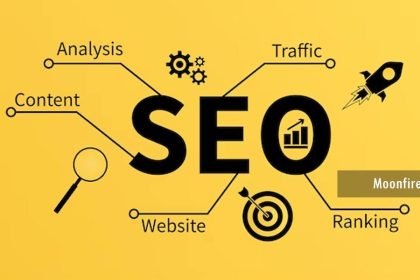SEO and Marketing, Search engines- Google, Yahoo, Bing- have become the heart of the internet industry. Each one is a powerful search engine that connects people with information, knowledge and ideas. Search engines are essential in our everyday lives; they help us find information quickly and easily. However, many people think that search engines are obsolete since they only index web pages based on content and structure. Many people also think that they’re too technical to understand how search engines work- so they don’t bother trying to understand them. However, it’s important to know how search engines work since they’re essential in promoting websites.
Search engines use several algorithms to match people with websites that contain information they’re looking for. For example, when a person enters a query into Google, the algorithm matches the person’s query with website content based on its relevance and popularity. The most important thing about using search engines is writing quality content for each webpage. Without good content, no amount of paid advertising will help your webpage gain traction. Plus, adding quality content regularly is crucial in ensuring your webpage remains relevant to search engine users. Essentially, SEO is an essential part of creating high-quality web pages.

SEO marketing is a subset of digital marketing that involves the optimization of websites and web pages for major search engines like Google. As these search engines became a predominant way of finding just about anything, various practices have emerged to help organizations improve the visibility of their digital assets.
The term “search engine optimization (SEO)” refers to a blend of internal and external tactics. The major search engines each have their own formula or “secret sauce” for ranking pages within search results. Referred to technically as algorithms, these formulas are closely guarded practices that major search engines protect as trade secrets.
Why Is Search Engine Marketing Important?
In the modern world, technology is an essential part of life, and search engines play an important role in that reality. Thousands of users perform search engine queries just about every second of every day. That is a tremendously large and constantly replenished audience to reach from a marketing perspective.
Digging a little deeper into the data, it becomes clear that marketing SEO is an exceptionally powerful tool. Courtesy of SEO Tribunal, the statistics below represent approximate figures to demonstrate the impact of search engine marketing:
- 67,000 users perform a Google search every second of every day.
- 93 percent of online endeavors start with a search engine query.
- 80 percent of searchers disregard paid advertisements in search results.
- 58 percent of online searches come from mobile devices.
- 46 percent of Google searches are locally and geographically focused.
- 39 percent of global traffic to eCommerce websites originates from search engines.
What Are the Components of On-Page SEO?
Sometimes referred to as “on-site SEO,” on-page SEO relates to the optimization of websites and pages to improve rankings in the major search engines. Organizations have a high degree of control over the elements of on-page SEO, making it relatively straightforward to optimize these factors and improve search rankings.
Several important aspects of on-page SEO include (1) Content, (2) Keywords, (3) HTML, and (4) Architecture.












